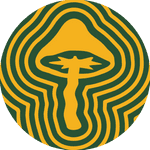

Current clinical data regarding the therapeutic use of psilocybin has significantly increased over the past few years due to a resurgence of scientific research. Psilocybin has demonstrated a remarkable ability to alter neural activity in the brain, making it a useful tool for treating a variety of psychiatric conditions, such as treatment-resistant depression, anxiety, and even addiction disorders.
Alcohol Use Disorder (AUD) is a chronic relapsing condition that causes some individuals to struggle with regulating their alcohol consumption or abstaining from use regardless of any negative consequences that may occur from it. There are very few medications currently available to treat AUD, and only about 1.6% of AUD patients actually receive treatment, partially due to the ineffectiveness of these medications and their side effects (1).
However, recent research has found that psychedelics like psilocybin may effectively reduce AUD behaviors for a long period of time, especially when combined with therapy (2). To further understand psilocybin’s mechanisms of action for addiction disorders, a pilot study has characterized the psilocybin-induced changes in neural reactivity that could potentially explain the therapeutic effects of psilocybin on patients with AUD.
Proposed mechanisms behind psilocybin and AUD treatment
The study examined a subsample of 14 participants from a parent clinical trial focused on psilocybin-assisted therapy for alcohol use disorder (3). A few days before receiving their first dose of medication, the participants were examined for their baseline cravings and underwent a task-based functional MRI (fMRI). Then, after receiving their initial dose of psilocybin or placebo, the participants underwent a second fMRI session to assess changes in brain activity.
During the fMRI screenings, the participants were exposed to pictures of alcoholic beverages and a range of emotional stimuli, categorized as positive, negative, and neutral, to trigger brain responses related to alcohol craving and emotional processing. This approach allowed researchers to examine the neural correlates of craving and emotional regulation in the context of AUD and to observe how these neural responses might be altered following psilocybin administration.
The findings from these fMRI sessions indicated notable changes in brain activity following psilocybin treatment. The participants in the psilocybin group demonstrated increased activation in areas associated with higher-order brain functions, like the prefrontal cortex, which is used for decision-making and impulse control. This apparent increase in activity could suggest an enhanced regulatory control over cravings and emotional responses. The results also found a reduction in activation in areas such as the insula, which is linked to the emotional aspect of craving and the urge to consume alcohol.
Furthermore, the researchers observed changes in functional connectivity, the way different brain regions communicate with each other. Following psilocybin administration, there was an increase in connectivity between regions that are known to be involved in the control of cravings and the processing of emotions, suggesting a more cohesive response to alcohol-related and emotional cues (4).
Future research
The alterations in brain activity and connectivity shown in the study provide preliminary evidence that psilocybin could potentially induce beneficial changes in the neural circuits associated with AUD. By influencing how the brain responds to alcohol triggers and emotional processing, psilocybin may help reduce cravings and improve emotional stability in individuals with AUD. However, as promising as these results are, it is important to note that these findings are preliminary and observed in a small sample size. Further research with larger sample sizes and longer follow-up periods is necessary to confirm these findings and understand the long-term efficacy of psilocybin-assisted therapy for alcohol use disorder. Nonetheless, the newfound understanding of psilocybin’s potential mechanisms for AUD treatment is a major step that will provide useful information for future studies.
References
- “A Double-Blind Trial of Psilocybin-Assisted Treatment of Alcohol Dependence.” 2022. Clinicaltrials.gov. November 8, 2022. https://clinicaltrials.gov/ct2/show/NCT02061293.
- Bogenschutz, Michael P, Alyssa A Forcehimes, Jessica A Pommy, Claire E Wilcox, P C R Barbosa, and Rick J Strassman. 2015. “Psilocybin-Assisted Treatment for Alcohol Dependence: A Proof-of-Concept Study.” Journal of Psychopharmacology (Oxford, England) 29 (3): 289–99. https://doi.org/10.1177/0269881114565144.
- Han, Beth, Christopher M. Jones, Emily B. Einstein, Patricia A. Powell, and Wilson M. Compton. 2021. “Use of Medications for Alcohol Use Disorder in the US.” JAMA Psychiatry 78 (8): 922. https://doi.org/10.1001/jamapsychiatry.2021.1271.
- Pagni, B. A., P. D. Petridis, S. K. Podrebarac, J. Grinband, E. D. Claus, and M. P. Bogenschutz. 2024. “Psilocybin-Induced Changes in Neural Reactivity to Alcohol and Emotional Cues in Patients with Alcohol Use Disorder: An FMRI Pilot Study.” Scientific Reports 14 (1): 3159. https://doi.org/10.1038/s41598-024-52967-8.


